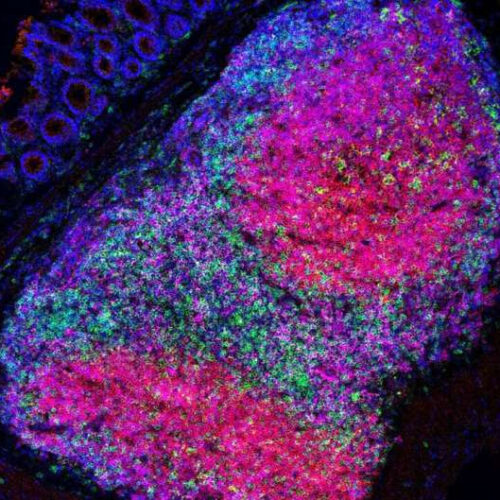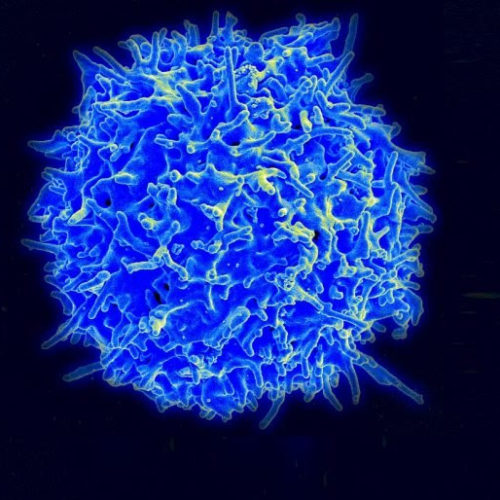by University of Pittsburgh Tertiary lymphoid structures, which contain Helper T cells, B cells, and natural killer cells, create a favorable environment for immune cell maturation and indicate cancer treatments are more likely to be successful. Credit: Abigail Overacre-Delgoffe A bacterium common in the mouse gut microbiome can charge up the immune system to fight...
Tag: <span>Anti-Tumor Immunity</span>
Ludwig Cancer Research study shows how certain macrophages dampen anti-tumor immunity
LUDWIG INSTITUTE FOR CANCER RESEARCH IMAGE: LUDWIG MEMORIAL SLOAN KETTERING’S INVESTIGATORS TAHA MERGHOUB, JEDD WOLCHOK, AND ASSISTANT ATTENDING PHYSICIAN ANDREW CHOW. CREDIT: LUDWIG CANCER RESEARCH JUNE 10, 2021, NEW YORK – A Ludwig Cancer Research study adds to growing evidence that immune cells known as macrophages inhabiting the body cavities that house our vital organs can aid...
New tool identifies which cancer patients are most likely to benefit from immunotherapy
A new prognostic tool developed by an international team led by CTI-Bath paves the way for personalised medicine for cancer patients. A new diagnostic tool that can predict whether a cancer patient would respond to immunotherapy treatment has been developed by scientists at the University of Bath. This advance in precision medicine will allow clinicians...
Moffitt researchers find dual inhibitor may be safer for CLL patients
Treatment with the PI3K/ CK1ε inhibitor umbralisib showed fewer immune-mediated adverse reactions compared to PI3K inhibitor therapy H. LEE MOFFITT CANCER CENTER & RESEARCH INSTITUTE TAMPA, Fla. — Chronic lymphocytic leukemia (CLL) is the most common leukemia in adults. One in four new leukemia cases are CLL. Early-stage CLL patients often do not require therapy,...
A New Actor in Cancer Immunity
The immune system must strike an exquisite balance between vanquishing infections and cancer, while at the same time restraining its activity to avoid inadvertently attacking the body’s healthy tissues and organs. This balancing feat is accomplished by a host of regulatory genes that calibrate the immune response. When this calibration goes awry, the immune system...
Modulation of anti-tumor immunity by the brain’s reward system
Abstract Regulating immunity is a leading target for cancer therapy. Here, we show that the anti-tumor immune response can be modulated by the brain’s reward system, a key circuitry in emotional processes. Activation of the reward system in tumor-bearing mice (Lewis lung carcinoma (LLC) and B16 melanoma) using chemogenetics (DREADDs), resulted in reduced tumor weight....
A Novel DNA Vaccine Design Improves Chances of Inducing Anti-Tumor Immunity
PHILADELPHIA — (Feb. 24, 2017) — Scientists at The Wistar Institute and Inovio Pharmaceuticals, Inc. have devised a novel DNA vaccine approach through molecular design to improve the immune responses elicited against one of the most important cancer antigen targets. Study results were published in the journal Molecular Therapy. Cancer immunotherapy approaches, designed to harness the body’s...



